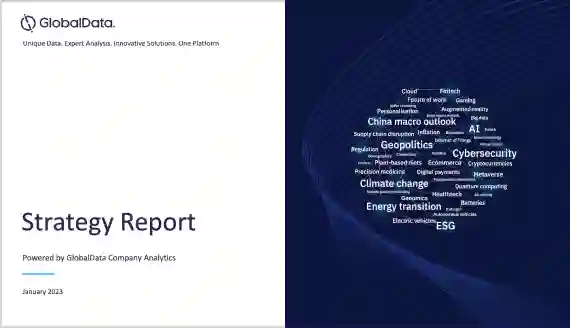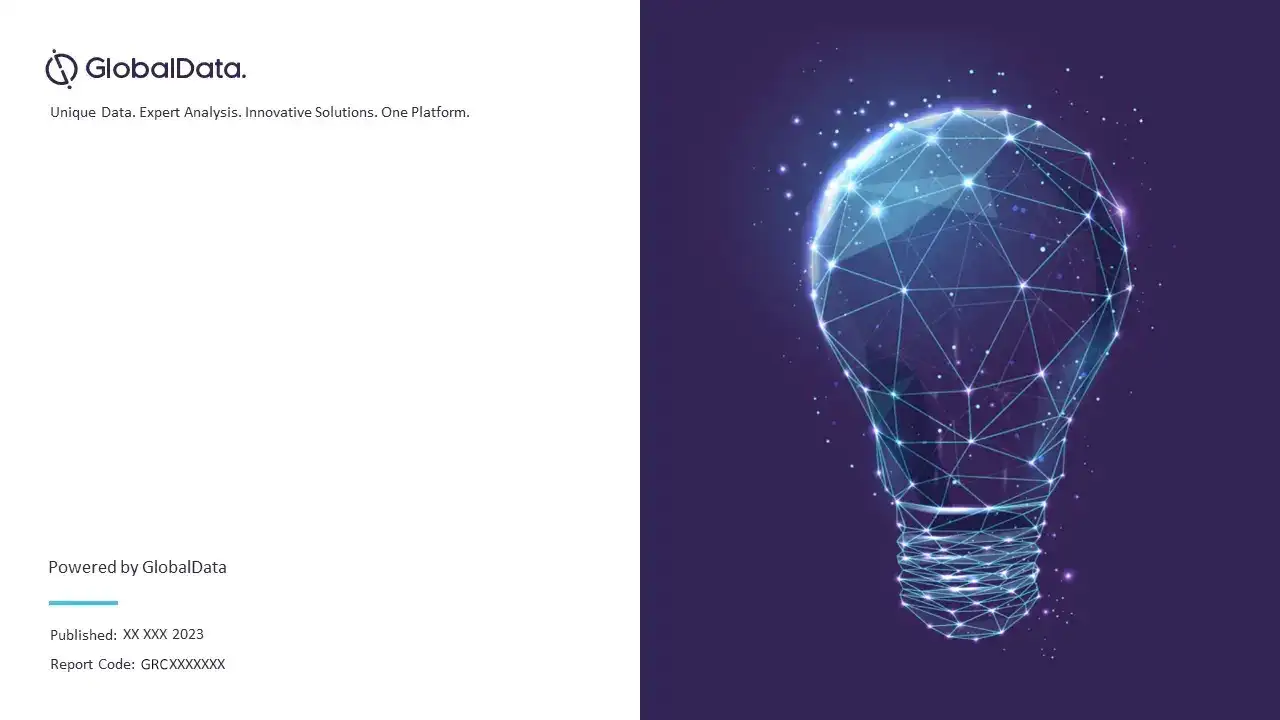Medical Devices Sector Scorecard – Thematic Research
Powered by ![]()
All the vital news, analysis, and commentary curated by our industry experts.
The medical device industry is a highly dynamic space filled with hundreds of competitors across various submarkets and themes. The healthcare sector has always been a laggard in adopting new technologies due to its highly regulatory and resistant nature. However, the COVID-19 pandemic has exacerbated the need for digital health advancements as medicine shifts beyond conventional clinical-based patient care to more personalized and preventative models where digitalization is key. The adoption of novel technologies such as the Internet of Things (IoT), artificial intelligence, robotics, 3D printing, and remote patient monitoring means that efficiencies across the value chain from distribution and fault management to operations and diagnosis of diseases, can be done at scale and with previously unattainable speed and accuracy. The COVID-19 pandemic has thus accelerated the adoption of digital health. However, lawmakers, healthcare networks, and patients will need to work together to alleviate significant concerns around maintaining patient privacy using these devices.
What is the overview of themes in medical devices sector scorecard?
3D printing: 3D printing has been extensively adopted by the medical industry with applications including surgical planning by providing a physical model of the operation area, training, and orthotics and prosthetics, among others. The quick adoption rate is due to this method’s quick turnaround compared to traditional methods. The orthopedic and dental sectors in particular have embraced 3D printing technology due to the demand for personalized devices where the technology can be optimized to work for an individual. 3D bioprinting is also a rapidly advancing application with the successful bioprinting of many organs. During the COVID-19 pandemic, the 3D printing sector as a whole has played a vital role in producing medical equipment. 3D printing companies such as 3D Systems, Carbon, and Renishaw designed and manufactured open-source personal protective equipment for healthcare workers worldwide. The companies leading the in the 3D printing are siemens, GE, Medtronic, Johnson & Johnson, Stryker, Zimmer Biomet, Smith & Nephew and the companies lagging are Teleflex and Biotronik.
Artificial intelligence (AI): The COVID-19 pandemic has profoundly impacted businesses, acting as a catalyst for AI adoption. In particular, the medical device industry has embraced the technology at a rapid rate. Implementing AI into the traditionally conservative medical technology field has the potential to improve the current methods of diagnosing, managing, and treating numerous diseases and health issues. The technology can be used in a myriad of applications, from enhanced imaging, diagnostic assistance, robotic surgery, to the implementation of patient flow optimization. Furthermore, with big data becoming more and more assessable and manageable, it is now possible to effectively analyze, process, and find new patterns in medical data, especially when combined with machine learning algorithms.
The AI industry is growing at an unprecedented rate, and the COVID-19 pandemic has only accelerated this trend. Large companies have been heavily investing in and implementing the technology and this trend is expected to continue in the future. The leading companies in Artificial intelligence (AI) are 3M, Medtronic, GE, Philips, Roche, Johnson & Johnson and lagging companies are Edwards life sciences, Danaher, Thermo Fischer Scientific, Illumina, Getinge, Teleflex.
Robotics: Robotics is a rapidly growing technology in medical devices. The surgical robotics segment holds enormous promise, particularly for surgical interventions that require high levels of precision. The evolution of technologies such as cloud computing and AI will drive innovation, thus reducing the need for the surgeon to be physically present. Major manufacturers are increasing their R&D efforts within robotic surgical systems. COVID-19 hurt the number of robotic surgical procedures due to the cancellation of elective surgeries. The negative impact of COVID-19 on robotic surgery was offset by organic growth. Intuitive Surgical, Medtronic, Johnson & Johnson, Zimmer Biomet, Smith & Nephew, Stryker are the players found in the Robotics.
Wearable tech: The COVID-19 pandemic has prompted the development of wearable devices into the medical device industry at a faster rate. Wearables can track real-time biometric signals across a large segment of the population without the constant monitoring of a healthcare professional. This function became incredibly useful throughout the pandemic as it reduced the number of hospital visits, thus allowing the optimization and allocation of resources in hospitals and healthcare. Technology giants such as Amazon, Google, and Microsoft have been expanding their solutions in the healthcare space for years. Over the last couple of years, these efforts have intensified, especially in the wearable devices sector.
Wearable technologies with specific health applications will continue to grow in popularity with the approval of devices deemed medically accurate entering the market. Health-specific products will challenge existing incumbents and traditional players, who were limited to fitness and tracking devices. In addition, start-up firms focusing on specific health solutions will amplify market competition. Large tech companies will have a strong presence in the market as they launch rival technologies and acquire or partner with smaller companies.
Cybersecurity: COVID-19 has heightened the need for cybersecurity. The pandemic shut down traditional modes of health delivery worldwide and connected health solutions became key. More connected devices mean safety and security concerns. To combat these, the regulatory and security environment evolved to address these attacks. Major healthcare regulation policymakers across the world updated their pre-market cybersecurity requirements for medical devices to reduce risks. Companies that offer cybersecurity solutions have formed partnerships with each other and other healthcare organizations. The aim is to provide cybersecurity services and training to protect patient data and privacy.
Internet of Things (IoT): Increased use of embedded sensors, the growing availability of fast cellular networks, and the rising adoption of wireless devices have widened the scope of IoT in medical devices in the last few years. Connectivity between sensors and devices enables healthcare organizations to streamline their clinical operations and workflow management, and aids real-time patient care, even from remote locations.
Genomics: Genomics is a growing market that generates substantial revenue and public interest. Growth has historically been accompanied by regulatory limitations on the extent of consumer health information these services can provide. It has also seen public scrutiny over privacy concerns of the handling of consumers’ genomic data by service providers. Although it grew remarkably in earlier years, slower growth in the past few years suggests the market has approached saturation, with continued declining future usage.
Remote patient monitoring (RPM): The RPM devices market will continue to grow significantly going forward and will also become an integral part of the healthcare paradigm for patients globally. However, data security, data accuracy, and systems integration are core challenges that developers of the next generation of innovative RPM devices will need to prioritize. COVID-19 significantly increased the groundwork for effective RPM usage by physicians and patients. RPM devices have the potential to improve patient care, reduce readmissions, and facilitate early discharge. In particular, RPM models using pulse oximetry and other measurements have been implemented for suspected COVID-19 cases.
COVID-19: As COVID-19 started to spread internationally many countries quickly enacted lockdown protocols to slow the spread. These protocols often included delaying elective procedures, as healthcare resources were diverted towards treating COVID-19 patients. This delay, and subsequent public health measures, significantly impacted the number of procedures that were performed, affecting many medical device markets. Additionally, COVID-19 expedited the adoption of many digital technologies.
ESG: Environmental sustainability is one of the biggest talking points in the medical device industry. The impact of medical waste resulting from single-use disposable medical devices is increasing. Worldwide, over 200 billion units of personal protective equipment (PPE) were used in hospitals in 2020. Many players across the medical device industry are announcing new ESG goals and issuing pledges to ensure more sustainable practices are implemented and upheld.
Medical devices sector scorecard, by key themes
For more theme insights, download a free report sample
Market report scope
| Themes | 3D printing, Artificial intelligence (AI), Robotics, Wearable tech, Cybersecurity, Internet of Things (IoT), Genomics, Remote patient monitoring (RPM), COVID-19 and ESG. |
Scope
- GlobalData’s Medical Devices Sector Scorecard provides a top-down, comprehensive outlook for the key players in the medical device industry over the next two to four years, based on 10 of the major themes set to transform the landscape.
- These 10 themes are 3D Printing, Artificial Intelligence, Robotics, Wearable tech, Cybersecurity, Internet of Things (IoT), Genomics, Remote patient monitoring (RPM)COVID-19, and ESG.
- The scorecard includes 35 companies from across the industry, including big tech companies that are making their mark in healthcare.
- The methodology section contains information on how the scores were generated.
Reasons to Buy
- Identify the key medical themes for the next 2-4 years and learn how they will impact the market.
- Understand which companies are best positioned for success within critical themes and why.
- Learn which companies have underinvested in key themes and are most vulnerable to disruption.
Alphabet
Johnson & Johnson
Roche
Danaher
Abbott
Thermo Fisher Scientific
Medtronic
Intuitive Surgical
GE
3M
Styrker
Siemens Healthineers
Philips
Baxter
Garmin
Omron
Terumo
Smith & Nephew
Table of Contents
Frequently asked questions
-
What were the key themes involved in the Medical Devices Sector Scorecard in 2020?
The key themes involved in the Medical Devices Sector Scorecard were 3D printing, Artificial intelligence (AI), Robotics, Wearable tech, Cybersecurity, Internet of Things (IoT), Genomics, Remote patient monitoring (RPM), COVID-19 and ESG.
Get in touch to find out about multi-purchase discounts
reportstore@globaldata.com
Tel +44 20 7947 2745
Every customer’s requirement is unique. With over 220,000 construction projects tracked, we can create a tailored dataset for you based on the types of projects you are looking for. Please get in touch with your specific requirements and we can send you a quote.
Related reports
View more Medical Devices reports











